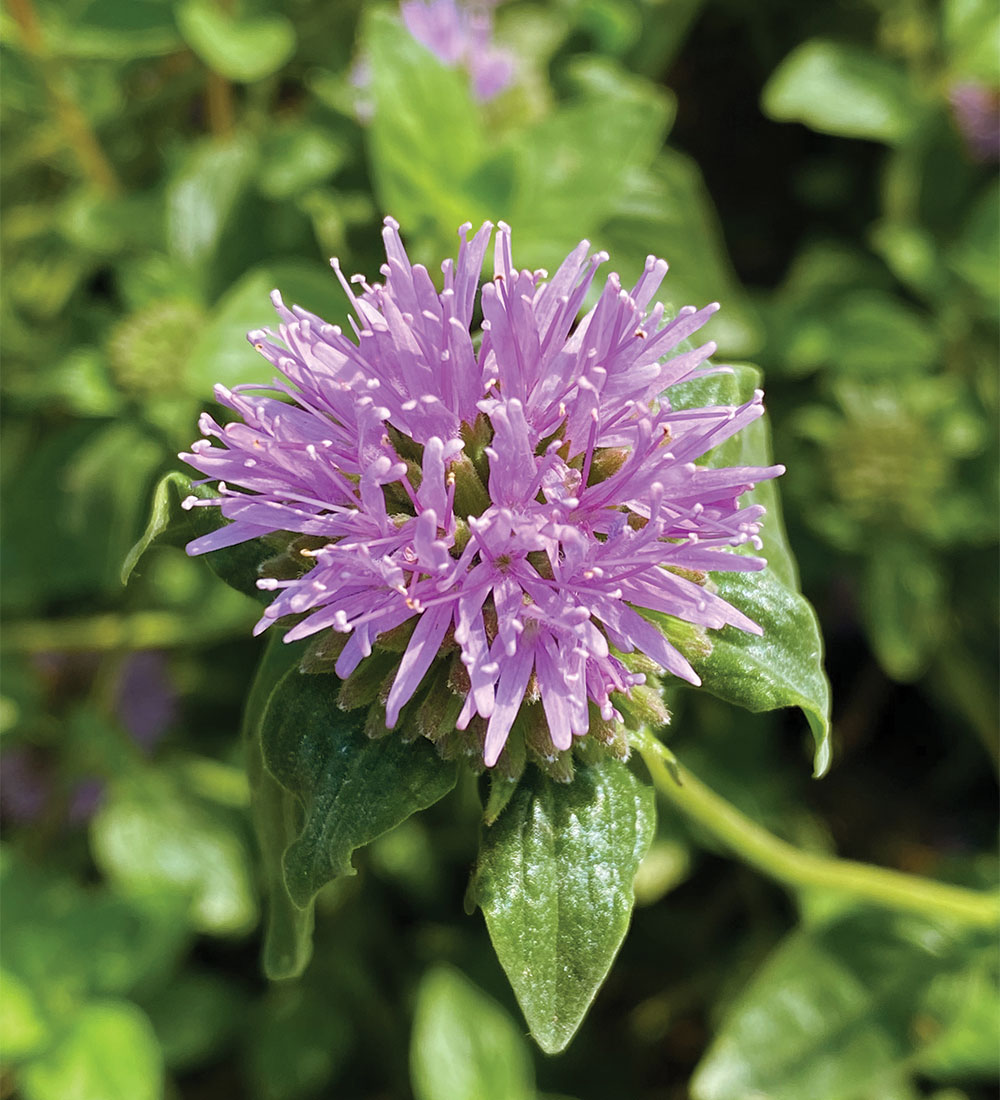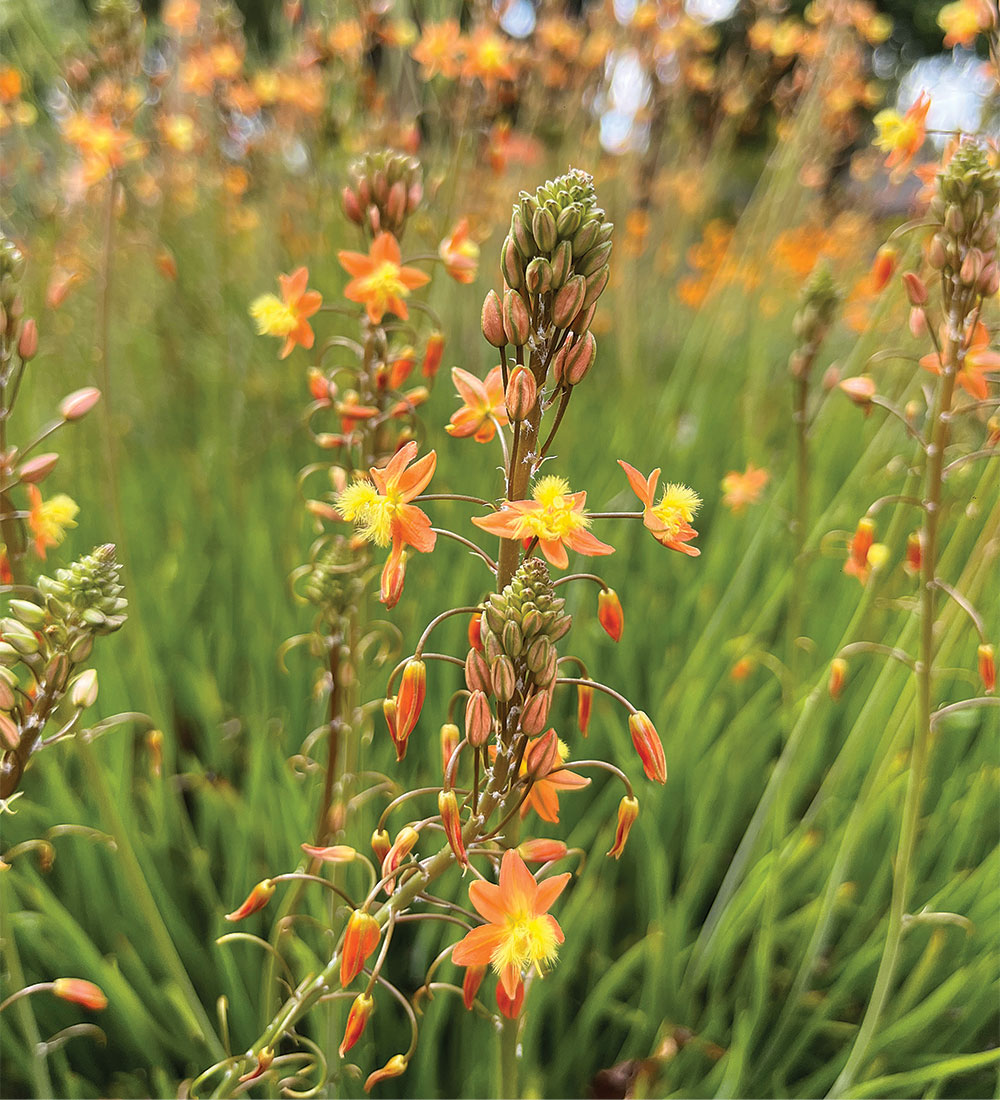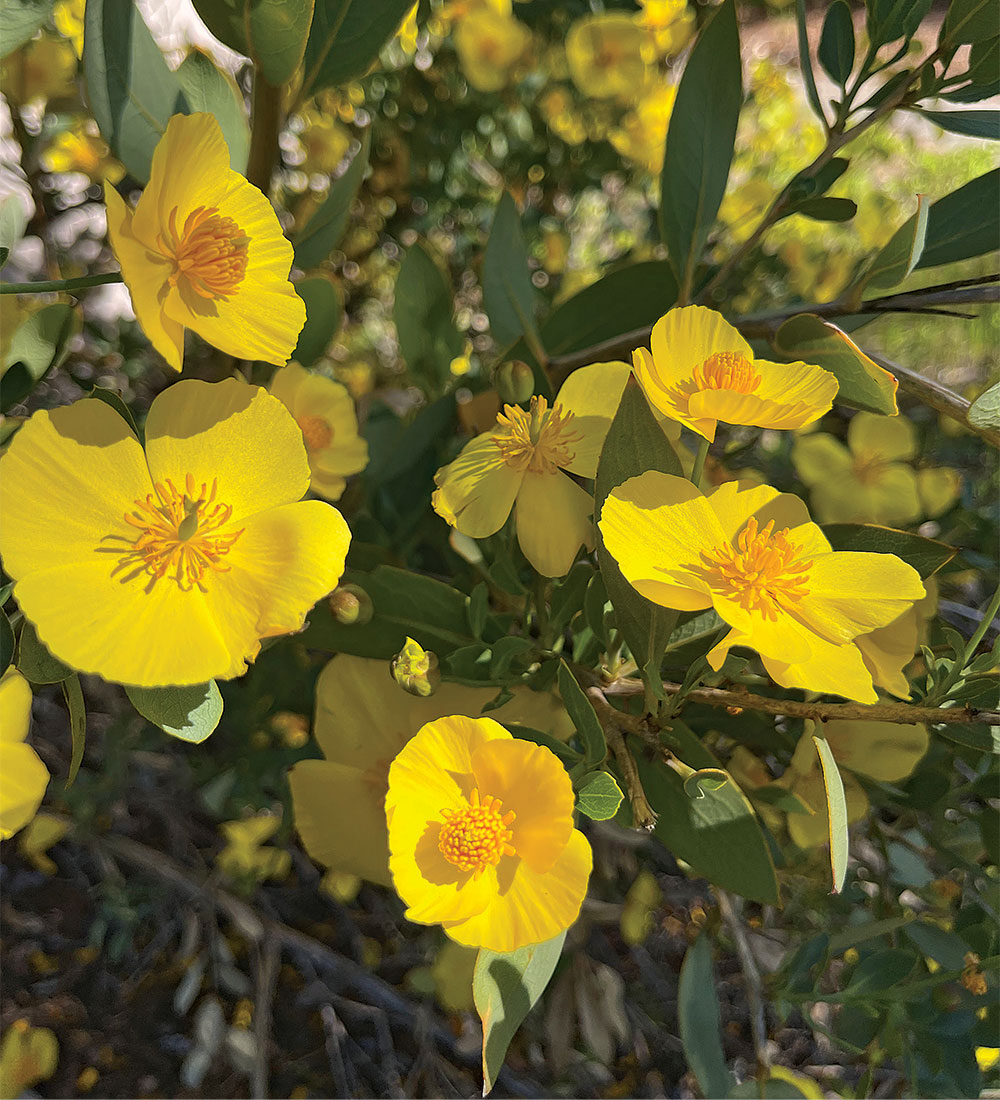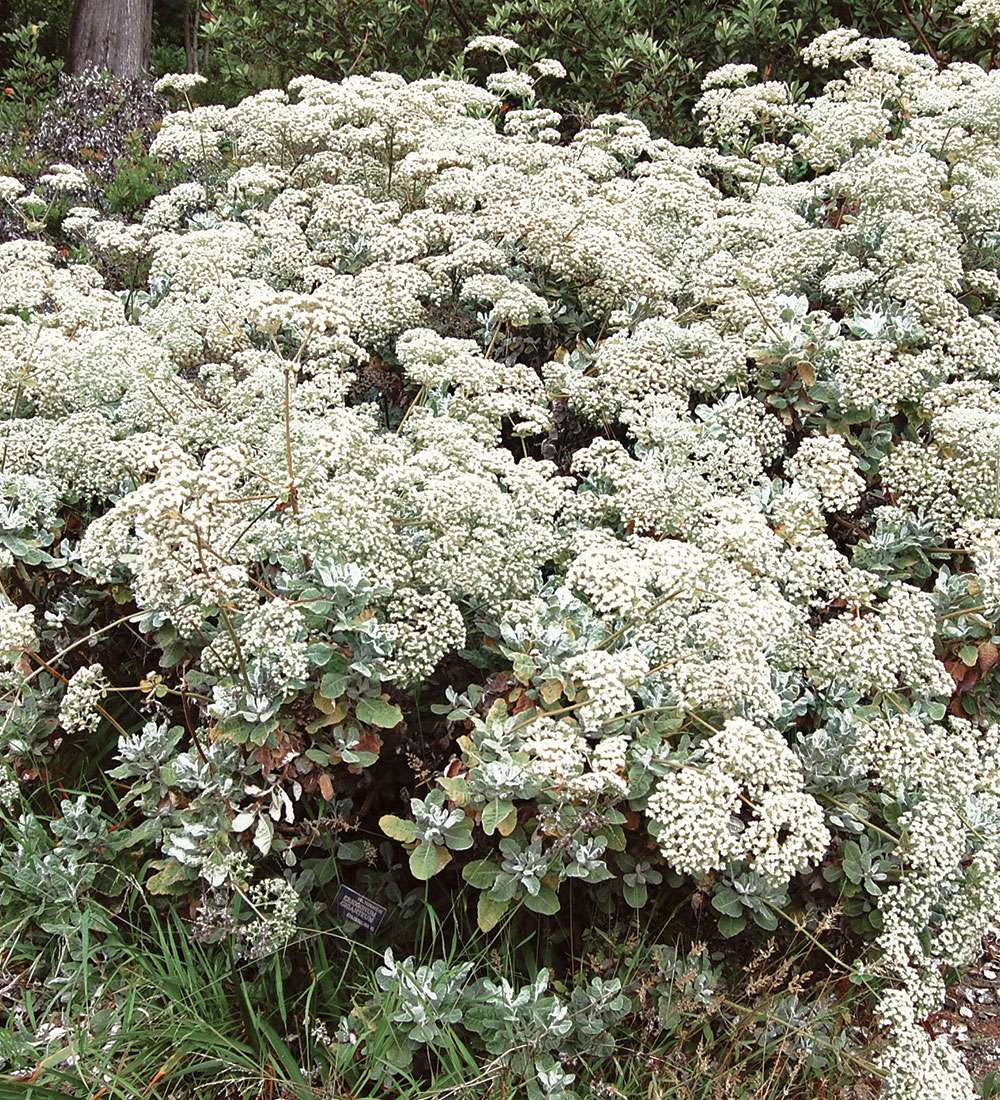Whether you have the space to create an expansive, pollinator-friendly landscape or just enough room to pot up a couple plants that are pollinator favorites, we can all do our part in helping these beneficial bugs. A good place to start is seeking out the plants that support the pollinators native to our area. To aid in that search, we asked regional experts to share some of the best pollinator plants for their region. Below, you’ll find four picks for the California. To learn even more about gardening for pollinators, check out Gardening for Pollinators: Everything You Need to Know and Grow for a Gorgeous Pollinator Garden.

1. ‘Russian River’ coyote mint
Name: Monardella villosa subsp. franciscana ‘Russian River’
Zones: 6–10
Size: 1 to 2 feet tall and 2 to 3 feet wide
Conditions: Full sun to partial shade; well-drained soil
Native range: Southern Oregon, California
‘Russian River’ coyote mint features purple, tubular flowers that are highly attractive to bees and butterflies. Hummingbirds love them too, making this plant important to supporting biodiversity. ‘Russian River’ has aromatic gray-green leaves and a loose, low-growing, spreading habit. Its drought tolerance makes it the perfect choice for rock gardens or planting under native oak trees (Quercus spp. and cvs., Zones 4–10). This cultivar is more vigorous than the straight species. It can survive with no supplemental water, but it will look better and bloom longer with some occasional water during summer.

2. ‘Hallmark’ orange stalked bulbine
Name: Bulbine frutescens ‘Hallmark’
Zones: 8–11
Size: 1 to 2 feet tall and 3 to 4 feet wide
Conditions: Full sun to partial shade; well-drained soil
Native range: South Africa
The vibrant flowers of ‘Hallmark’ orange stalked bulbine attract many pollinators. While it typically blooms in spring and summer, this plant can continue to flower sporadically throughout the rest of the year. ‘Hallmark’ has a clumping, mounding growth habit and spreads through rhizomes. The tall spikes of small, star-shaped flowers that are a vibrant yellow to orange rise above the fleshy foliage, creating a striking display. As a succulent, this bulbine is adapted to drought conditions and has low water needs.

3. Bush poppy
Name: Dendromecon rigida
Zones: 8–10
Size: 6 to 10 feet tall and wide
Conditions: Full sun to partial shade; well-drained soil
Native range: California
Many beneficial insects flock to this resilient evergreen shrub. Bush poppy has stunning yellow flowers that bloom from March to June. Thriving in a sunny site with fast-draining soil, it also tolerates clay soil with minimal watering. This shrub grows rapidly and exhibits excellent cold tolerance for a California native plant, recovering quickly from freezes. Bush poppy is known for its toughness, surpassing even California lilacs (Ceanothus spp. and cvs., Zones 7–10), and it provides a remarkable display early in spring. This plant is ideal for landscapes that require a durable flowering shrub.

4. Saint Catherine’s lace
Name: Eriogonum giganteum
Zones: 8b–11
Size: 4 to 8 feet tall and 6 to 8 feet wide
Conditions: Full sun; well-drained soil
Native range: Channel Islands
St. Catherine’s lace is a notable species of California’s native flora. Its small, nectar-rich white blooms, which appear from late spring until fall, attract bees and butterflies. Just below, its large, bushy growth forms dense patches that provide small birds with cover from predators and harsh weather. This plant thrives in dry Mediterranean conditions—hot, dry summers and mild, wet winters. It prefers rocky soil but can be grown in clay as long as it’s well-draining. While it can withstand periods of drought, supplemental watering during extremely hot weather may be beneficial.
Shireen Zia is the owner of EcoGardens Landscape Design in Los Altos, California.
